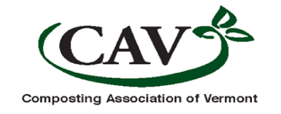Have you considered the connection between healthy soil and clean water?
Common sources of water pollution are soil erosion and the runoff of fertilizers and pesticides. Compacted soils encourage runoff. Soil degradation is often caused by a lack of or decline in organic matter, one of the most important indicators of soil health and productivity. Healthy soil, rich in organic matter, greatly reduces and can even prevent water pollution.
A healthy soil food web has many benefits for gardeners, farmers and turf growers. Healthy soil: recycles and uses nutrients more effectively; retains more moisture; acts as a filter for environmental toxins by immobilizing or degrading the potential toxins and; generally produces healthier plants that are more resistant to diseases, insect infestations, and drought.
A healthy balance of soil microbial life comes from the right mix of living material: humus, fungi, bacteria, protozoa, and other microbes. You can create or help maintain a healthy soil food web by making sure you have 5% to 10% organic matter in your soils. It’s easy, just add compost to your lawns and gardens. A healthy soil food web creates the best conditions for soil and plant health and is better for the environment, including waterways.
When gardeners add the “biology back to their soil” by using compost, they create the conditions that lead to fewer health problems, more production, and less maintenance.
Additional Resources
Soil Health and Compost for Vegetable & Berry Growers (from UVM Extension)
Soil Ecology 101 (CAV)
Discover Soils Project (Soil Science Society of America)
A Guide to Better Soil Structure (National Soil Resources Institute)
Healthy Soil for Life (USDA Natural Resources Conservation Service)
Soil Quality Indicator: Organic Matter (USDA Natural Resources Conservation Service)
What Does Organic Matter Do in Soil? (Noble Research Institute)
Soils for School Classroom Activities (soil-net.com)
Building Healthy Soils with Compost to Protect Watersheds (Institute for Local Self Reliance, 2013)
Healthy Soils are: High in Organic Matter (USDA Natural Resources Conservation Service)

